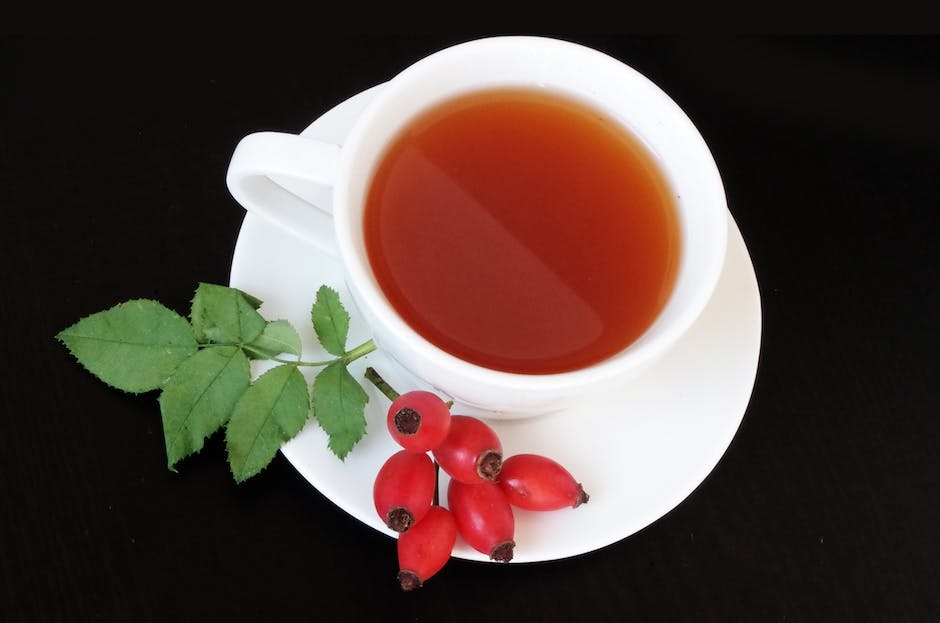Introduction to Herbal Tea Therapy
Welcome to our blog for tea lovers! In this article, we will be diving into the world of herbal tea therapy. Herbal tea therapy is an ancient practice that involves using different herbs and plants to promote overall health and well-being. For centuries, herbal teas have been used for their medicinal properties, offering a natural and gentle way to support the body and mind.
Herbal tea therapy is gaining popularity in today’s fast-paced world as more and more people are seeking natural remedies to boost their health. Whether you are looking to relax, improve digestion, enhance sleep quality, or simply enjoy the flavors and aromas of different herbs, herbal teas can provide a holistic approach to wellness.
In this article, we will explore the benefits of herbal tea therapy, discuss the various types of herbal teas and their specific health benefits, learn how to prepare herbal tea for therapy, and discuss precautions and potential side effects to be aware of.
Benefits of Herbal Tea Therapy
Herbal tea therapy offers a wide range of benefits for both the body and mind. Here are some of the key advantages of incorporating herbal teas into your wellness routine:
- Boosts Immunity: Many herbal teas are rich in antioxidants and vitamins, which can help strengthen the immune system and fight off illnesses and infections.
- Promotes Relaxation and Stress Relief: Certain herbal teas like chamomile, lavender, and passionflower have calming properties that can help reduce stress, anxiety, and promote better sleep.
- Aids Digestion: Some herbal teas, such as peppermint and ginger, have been traditionally used to soothe digestive discomfort, relieve bloating, and improve overall digestion.
- Supports Weight Management: Herbal teas like green tea and dandelion tea are known for their potential to increase metabolism, burn fat, and assist in weight management when accompanied by a healthy diet and exercise.
- Enhances Mental Clarity and Focus: Certain herbs like ginkgo biloba and rosemary are believed to have cognitive benefits, improving memory, concentration, and overall mental clarity.
- Provides Hydration: Herbal teas are an excellent way to stay hydrated, especially for those who prefer non-caffeinated options. Hydration is vital for overall health and can support various bodily functions.
These are just a few of the many benefits that herbal tea therapy can offer. Each herb carries its own unique properties and potential health advantages, making herbal teas a versatile and enjoyable addition to your daily routine.
Types of Herbal Teas and their Health Benefits

There are numerous types of herbal teas available, each with its own distinct flavors and health benefits. Here are some popular herbal teas and their potential health advantages:
- Chamomile Tea: Chamomile tea is known for its calming properties and is often used to promote relaxation, reduce anxiety, and improve sleep quality.
- Peppermint Tea: Peppermint tea has a refreshing taste and is commonly used to soothe digestive issues, including bloating, gas, and stomach discomfort.
- Ginger Tea: Ginger tea has a spicy and warming flavor and is believed to aid digestion, reduce nausea, and alleviate inflammation.
- Lemon Balm Tea: Lemon balm tea has a citrusy and soothing taste. It is known to have calming effects, help with sleep disturbances, and promote a sense of relaxation.
- Hibiscus Tea: Hibiscus tea has a tart and vibrant flavor. It is rich in antioxidants and may help lower blood pressure, improve heart health, and support immune function.
- Rooibos Tea: Rooibos tea is caffeine-free and has a naturally sweet and earthy taste. It is rich in antioxidants and may have anti-inflammatory properties.
These are just a few examples of the wide variety of herbal teas available. It’s always a good idea to explore different options and find the ones that resonate best with your taste preferences and specific health goals.
How to Prepare Herbal Tea for Therapy
Preparing herbal tea for therapy is a simple and enjoyable process. Here is a basic guide to help you get started:
- Choose your herbs: Select the herbs that align with your desired health benefits. You can purchase pre-packaged herbal tea blends or create your own by combining dried herbs.
- Measure the herbs: Use approximately 1 teaspoon of dried herbs per cup of hot water. Adjust the amount according to your taste preferences.
- Boil water: Bring water to a boil in a kettle or saucepan.
- Steep the herbs: Place the herbs in a tea infuser or directly in a teapot. Pour the hot water over the herbs and let steep for about 5-10 minutes. Adjust the steeping time based on the strength you desire.
- Strain and serve: Remove the tea infuser or strain the herbs from the teapot. Pour the herbal tea into your favorite cup or mug and enjoy.
- Enhance the flavor: You can add natural sweeteners like honey or lemon to enhance the flavor of your herbal tea if desired.
Remember to read the instructions provided with the specific herbs you are using, as some may require slightly different preparation methods. It’s also advisable to consult with a healthcare professional if you have any underlying health conditions or are taking medications that may interact with certain herbs.
Precautions and Side Effects of Herbal Tea Therapy
While herbal tea therapy can offer various health benefits, it’s essential to be aware of potential precautions and side effects:
- Allergic Reactions: Some individuals may be allergic to certain herbs used in herbal teas. If you have known allergies to specific plants, it’s important to avoid herbal teas containing those ingredients.
- Pregnancy and Breastfeeding: Certain herbs can have adverse effects on pregnancy and breastfeeding. It’s recommended to consult with a healthcare professional before consuming herbal teas if you are pregnant, nursing, or trying to conceive.
- Medication Interactions: Herbal teas can interact with medications, either intensifying or reducing their effects. If you are taking any medications, it’s advisable to consult with your healthcare provider to ensure there are no potential interactions.
- Excessive Consumption: While herbal teas are generally safe, consuming excessive amounts may lead to adverse effects. It’s important to follow recommended guidelines and listen to your body’s response.
- Quality and Contamination: Ensure that the herbal teas you purchase are from reputable sources to avoid potential contamination or the presence of pesticides or other harmful substances.
It’s always recommended to do thorough research and consult with a healthcare professional before incorporating herbal tea therapy into your routine, especially if you have any pre-existing health conditions or concerns.
Remember, herbal tea therapy is not a substitute for medical advice or treatment. It is a complementary approach to wellness that can support overall health and well-being when used responsibly and in conjunction with a balanced lifestyle.


Leave a Reply